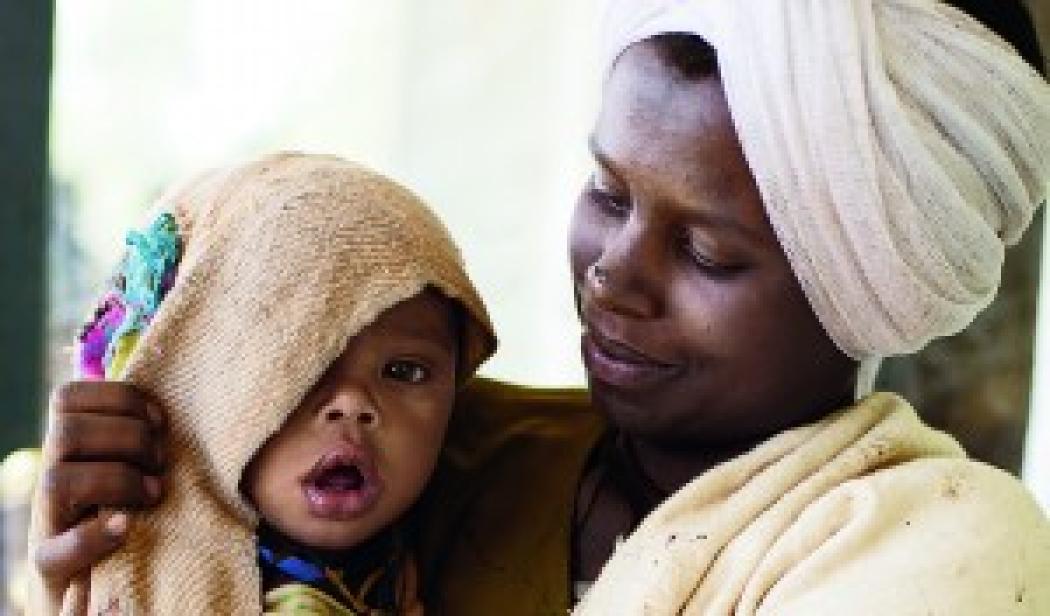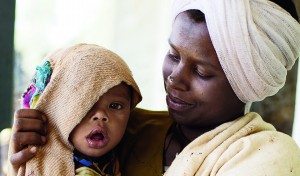Aligning for Access: Family Planning, Health Workers and Universal Health Coverage

By Fabio Castaño and Jonathan Jay, Management Sciences for Health (MSH)
 Photo by Warren Zelman. Courtesy MSH.
Photo by Warren Zelman. Courtesy MSH.
In a week and a half, as a team of our colleagues arrive in Ethiopia for this year’s International Conference on Family Planning, others will already be in Brazil for the Third Global Forum on Human Resources for Health. This year’s HRH Forum addresses universal health coverage (UHC), a concept which continues to gain momentum as the focus of global health efforts from institutions like the World Bank and World Health Organization (WHO).
It’s symbolic that these two meetings are happening half a world apart: as movements around family planning, health workforce and UHC have advanced, there has been too little dialogue and collaboration across these communities.
There’s more than enough common ground: all three communities care most about making essential health care more available. The family planning conference’s theme is “Full Access, Full Choice” in recognition of the more than 200 million women worldwide who want to prevent or delay pregnancy but don’t have access to contraception, especially in low-income settings. Poor access means unintended pregnancies, leading inexorably to unsafe abortions, maternal deaths and economic struggle for women and their families.
Shortfalls in family planning are worst in sub-Saharan Africa (just over 20% coverage of women ages 15-49) and South Asia (around one-third), corresponding largely to shortages of the health workers who make family planning possible. Health workers at the community level can assist women and men to make informed reproductive decisions and deliver a range of contraceptives, even in the most rural areas. Often working in their home villages, they can boost social acceptability of contraceptives. They’re a “best buy” in global health. There just aren’t enough of them yet. Despite recent progress, a lack of health workers in rural settings remains a major determinant of poor health.
The challenge is getting the right people, in the right places, delivering the right services effectively. UHC is a strategy for making this happen. UHC efforts start with changing how health care is paid for: instead of patients paying out of pocket for care whenever they need it, more money goes into the system upfront so that services can be inexpensive or free at the point of use. That money comes from insurance premiums—from employers and people who can afford to pay—and from government subsidies. Many developing countries working towards UHC have funded the system by passing new taxes, boosting government commitment behind healthcare for the less-advantaged.
With a lot more money in the system upfront, governments can plan services better, investing in more equitable and sustainable models. Governments can train, deploy and manage more frontline health workers to deliver family planning in poor and rural areas. While public services scale up, governments can partner with the non-profit and private sectors through total market approaches to fill the gaps with affordable care for all populations. Governments can coordinate their own investments with investments from donors and businesses, maximizing the impact of each.
Aligning health priorities and health workforce under UHC can bring family planning to the frontlines. In Rwanda, to scale up service delivery for its growing UHC scheme, the country decentralized health services to prioritize basic primary care interventions through community health workers and community health centers – the national health insurance component now covers more than 90% of Rwandans. In parallel, a massive family planning campaign channeled funding from domestic and multiple international sources. Between 2005 and 2010, the country increased contraceptive prevalence from 17% to 52% and reduced unmet need from 38% to 19% – an astonishing improvement. The system proved sustainable: Rwanda’s recent HPV vaccination efforts have reached 93% of eligible girls.
To make UHC work for women, UHC must be designed correctly. UHC is defined by an aspirational vision that everyone receives all the services she needs without financial hardship—but, realistically; low-income countries must start with modest services. Family planning is an ideal candidate for even the most frugal plans: it’s low-cost and dramatically high-impact. Plus, family planning supports the sustainability of UHC, as a proven driver of economic growth. A core package of services for reproductive, maternal and child, driven by community health workers, provides the logical cornerstone of UHC plans in developing countries. With support from MSH, many countries have begun expanding successful child survival programs known as integrated community case management to incorporate maternal and reproductive health—an “iCCM Plus” approach.
While each country needs latitude to design its own plan, family planning services should be non-negotiable. At the global level, technical groups working on UHC targets, like World Bank and WHO, haven’t affirmed that family planning is a required element of UHC schemes. They should; at the very least, they could create a de facto family planning requirement by measuring UHC according to adolescent birth rates, contraceptive prevalence and unmet need for family planning.
For the global health community to get UHC right, family planning and health workforce advocates must engage. Plans must guarantee reproductive health access through well-designed benefits packages and health workforce strategies that ensure adequate training, distribution and management of health workers. A focused vision for UHC is our best chance to align investments in global health, making family planning accessible and affordable for everyone who needs it.
While our communities might not be in the same place next month, our minds can be. Follow conversations online with hashtags: #familyplanning, #healthworkerscount, #UHC, and #WomenLead. For conference specific tweets use: #ICFP2013 and #ICFPYouth (Addis) and #3GFHRH (Recife). Attending ICFP 2013? Join us at the Sheraton Addis for "What will universal health coverage mean for family planning?" on Wednesday, November 13, 2013, from 7:00 to 9:00 pm.
Fabio Castaño, MD, MPH, works with Management Sciences for Health (MSH) as the Global Technical Lead for Family Planning and Reproductive Health (FP/RH) and as Portfolio Regional Director for Southern Africa and Latin America. He leads technical assistance on FP/RH to design, implement, and supervise service delivery strategies through MSH projects in more than 30 countries.
Jonathan S. Jay, JD, MA, is a senior writer for MSH. Previously affiliated with Georgetown University and the National Institutes of Health, his work on HIV policy has appeared in the Journal of the American Medical Association (JAMA) and The Lancet.
